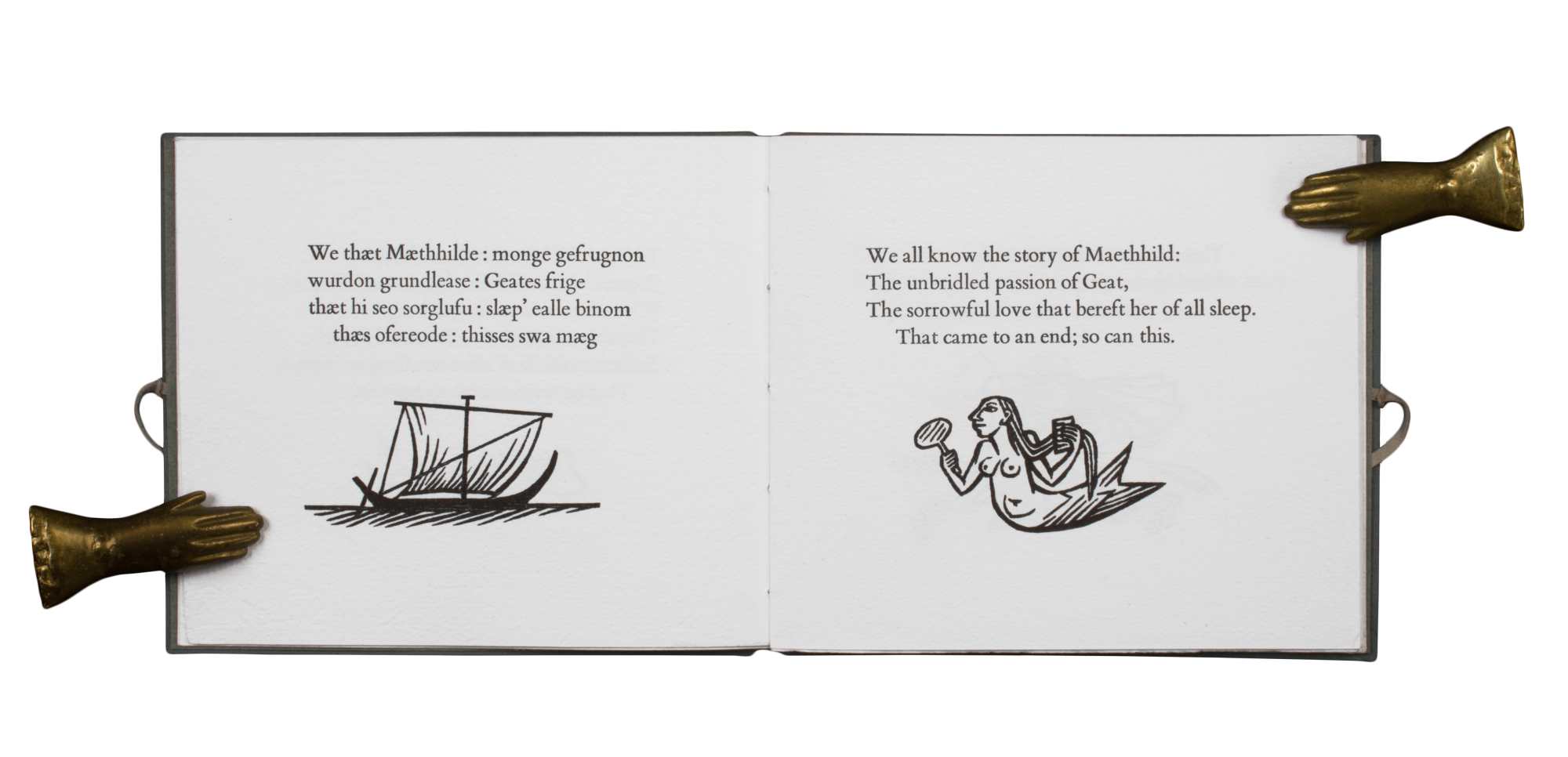
Deor's Lament Germanic Mythology Norse Mythology
"Deor" (or "The Lament of Deor") is an Old English poem found in the late-10th-century collection [1] the Exeter Book. The poem "Deor" is a lament by its author about his exile from his.

Deor YouTube
Some call it a lament, an elegy, or even a "begging poem," meaning that it was written by an itinerant begging poet without an official place in a court. There are, however, some similarities between "Deor" and two of the other poems in Exeter Book, "The Seafarer" and "The Wanderer".

A Time for Lament Christian Reformed Church
Deor's Lament By Anglo-Saxon Literature Translation of Francis Barton Gummere W AYLAND often wandered in exile, doughty earl, ills endur'd, had for comrades care and longing, winter-cold wandering; woe oft found since Nithhad brought such need upon him,— laming wound on a lordlier man. That pass'd over,—and this may, too!

“Deor, Wulf & Eadwacer" and "The Wife's Lament” A reading by
Deor. The Old English poem "Deor" is unique in that it has a repeating refrain "þæs oferēode, þisses swā mæg" (That passed away, and so may this). It also describes five disastrous events in history or mythology, which would have been familiar to the audience, and which are used to demonstrate that terrible situations can be overcome.

Deor’s Lament ANONYMOUS, trans Frederick Lock
"Deor's Lament" is one of the truly great poems of English antiquity. This modern English translation of one of the very best Old English/Anglo-Saxon poems is followed by footnotes and the translator's comments. Included in the notes are a summary and a detailed analysis of the poem's plot, theme, genre, purpose, context, references and techniques.

Deor’s Lament ANONYMOUS, trans Frederick Lock
From The Oldest English Epic : Beowulf, Finnsburg, Waldere, Deor, Widsith, and the German Hildebrand, Translated in the Original Metres with Introduction and Notes by Francis B. Gummere, New York : The Macmillan Company, 1923 ; pp. 178-188.. 178 CHAPTER V THE SINGER AND HIS LAY. IF the Beowulf and the Waldere were epic poems composed by that more deliberate process in vogue in the scriptorium.

Deor's Lament YouTube
" Deor " (or " The Lament of Deor ") is an Old English poem found on folio 100r-100v of the late- 10th-century collection [1] the Exeter Book. The poem consists of a reflection on misfortune by a poet whom the poem is usually thought to name Deor. The poem has no title in the Exeter Book itself; the title has been bestowed by modern editors.

Deor’s lament Unknown(AngloSaxon poetry) YouTube
"The Complaint of Deor," also known as "Deor's Lament," is an Old English poem that dates back to the 10th century. It is a short poem and contains only 52 lines. It is a personal lamentation attributed to Deor, a scop (poet) in Anglo-Saxon England.

Deor’s Lament It belongs to the paper Up Until Chaucer of first
an indomitable smith wracked by grief. He suffered countless sorrows; indeed, such sorrows were his bosom companions in that frozen island dungeon where Nithad fettered him: so many strong-but-supple sinew-bands binding the better man. That passed away; this also may. Beadohild mourned her brothers' deaths, bemoaning also her own sad state

Lament and Hope in Times of Injustice and Racism The Thrive Center
me wæs Deor noma. my name was Deor. Ahte ic fela wintra: I had for many winters: folgað tilne, a good position, holdne hlaford, a loyal lord, oþ þæt Heorrenda nu, until Heorrenda now, 40a: leoðcræftig monn, a man skilful in songs, londryht geþah: has taken the estate: þæt me eorla hleo: that the protector (hleo) of warriors (eorla.

Deor's Lament El Camino Burnout YouTube
The Deor exemplum differs fundamentally from the other exempla in the poem. Coming after the general remarks on adversity, both the exemplum and the refrain are cast in new light. The Deor exemplum, more precisely and specifically than any of the others, reflects the poet's comments on adversity and honour.

Deor's Lament Translation Deor's Lament Translation Poem by Michael Burch
Deor's Lament See all related content → Deor, Old English heroic poem of 42 lines, one of the two surviving Old English poems to have a refrain. (The other is the fragmentary "Wulf and Eadwacer.") It is the complaint of a scop (minstrel), Deor, who was replaced at his court by another minstrel and deprived of his lands and his lord's favour.

Lament YouTube
Though some scholars believe that the lament is merely a conventional pretext for introducing heroic legends, the mood of the poem remains intensely personal.) English literature ("Deor" bridges the gap between the elegy and the heroic poem, for in it a poet laments the loss of his position at court by alluding to sorrowful stories from Germanic legend.)

Daily Prayer A Lament
"DEOR'S LAMENT" In Select Translations from Old English Poetry edited by Albert S. Cook and Chauncey B. Tinker, 58-60. Cambridge, MA and London, England: Harvard University Press, 1935. Cambridge, MA and London, England: Harvard University Press, 1935.

"Deor's Lament" A Complete Analysis All About English Literature
dear to my lord. 'Deor' was my name; áhte ic fela wintra folgað tilne, I had for many winters a good employment, holdne hláford oþ þæt Heorrenda nú. a gracious lord, until now Heorrenda, léoðcræftig monn londryht geþáh. 40. a song-skilled man, received the land-rights.

1. Deor's Lament notes from the lecture Deor’s Lament ( example of
Deor's Lament In Dear's Lament, the poet speaks of a man who has been suddenly thrown out of employment by his master and has been supplanted by another minstrel, Heorrenda. He is also a minstrel and so he gives expression to his sorrowful feelings in beautiful language. He consoles himself by considering the misfortunes of others.